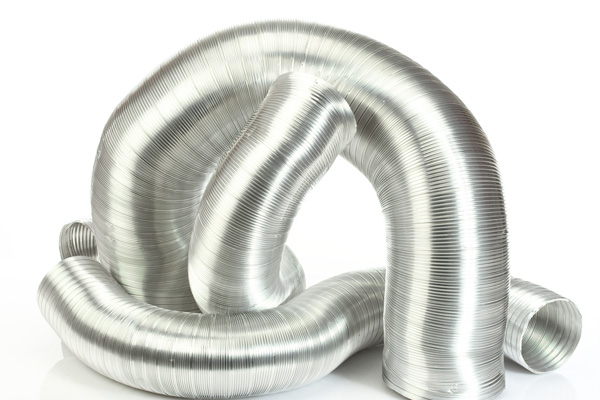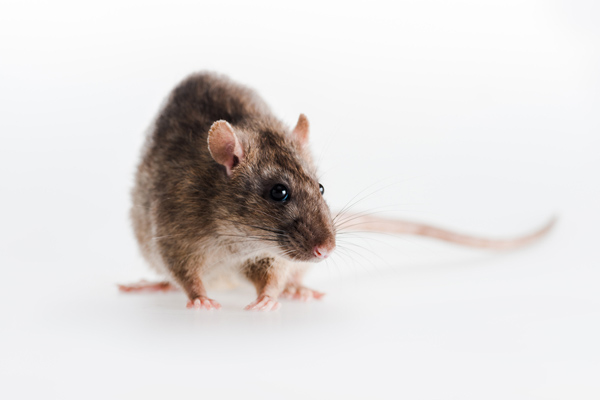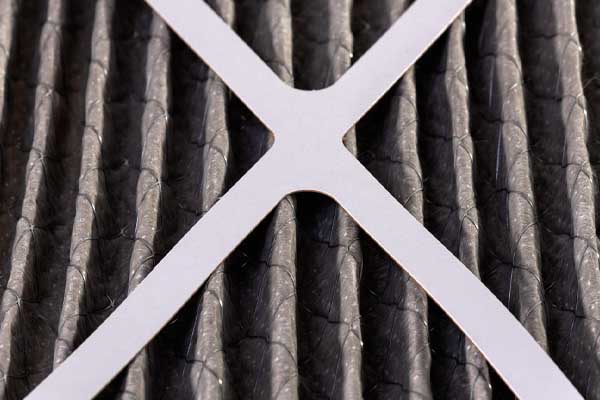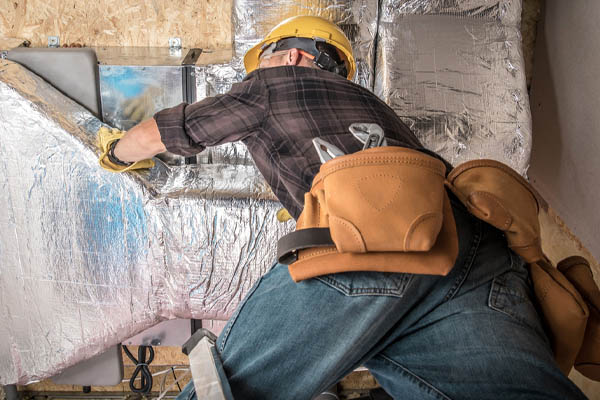How To Deal With HVAC Ductwork Noise

Central heating and air conditioning systems produce heated and cooled air in one place and then distribute it throughout the entire building via ducting. HVAC air ducts are often comprised of metal, which makes them prone to creating noise, even with just slight disturbances. This noise and be annoying to residents, especially if its persistent and loud. It can even make it difficult to sleep at night. Keep reading to learn more about why HVAC systems make noise and how you can help limit it.
Possible Causes of Duct Noise
Table of Contents
There are many reasons why HVAC air ducts start making noise. Take a minute to listen to the sounds to determine what types you’re hearing. Even if you aren’t able to see the exact cause of the noise, you might be able to get a little insight. One common noise in HVAC ductwork is banging.
Banging in HVAC Air Ducts
Homeowners often report that there are popping and banging noises within their ducts. These usually happen in short bursts. They are caused by the heat- or cold-related expansion and contraction that occurs at the duct walls as the temperatures inside of the HVAC air ducts rise and fall. Changes in pressure can also cause these sounds. Keep in mind that hot air leads to duct expansion, and cold air makes ducts contract. These changes might not be visible, but you can certainly hear them occurring in real time just after you’ve turned your furnace or air conditioner on.
Additional Causes for Ductwork Noise
Banging and popping aren’t the only noises that your ductwork is likely to produce. Following are several other common noises, along with what causes them.
The Ductwork Is Rattling

If you’ve got rattling sounds coming from the interior of your air ducts, then loose metal parts could be the culprit. When these components knock into each other, they produce noise. This happens more frequently as HVAC ducting gets old. Over time, the seals start failing, and static pressure causes the connection to loosen. You will hear this noise whenever air is traveling through the ducts from your AC unit or furnace. It might start out as fairly soft, but it will become increasingly louder until it can no longer be ignored. Hire an HVAC company to identify the problem and resolve it.
Booming Noises in the HVAC Ductwork
You might hear loud booming sounds right at the juncture of the duct plenum and truck. This particular spot happens to experience the greatest fluctuations in temperature. If there aren’t enough dampers and expansion joints at the connection, the noise will reverberate throughout your entire home via the system’s supply ducts. A seasoned and highly skillful installer knows that this is possible, so they’ll do all that they can to limit noise at this connection.
Shaky HVAC Ductwork
At times, you might see and hear the ducts vibrating or shaking while producing a low humming sound. This frequently occurs when the airflow is blocked on the return-side as the result of a dirty air filter. Given that air cannot come in, the air pressure plummets, and the duct walls start vibrating it. Create a schedule for inspecting your air filters. If an air filter becomes excessively dirty, clean it or swap it out with a fresh one. Your ducts will be quieter during HVAC system operation and the entire system will be more efficient.
Scratching Sounds in the Ducting

Scratching is another unsavory sound that might come from your HVAC air ducts. If it appears as though something is scratching against the metal, there’s a high likelihood that you’ve got a problem with squirrels, raccoons, rats, or other vermin that found their way into your system. Take action right away or they may nestled in and make the space their new home, thereby reducing your indoor air quality (IAQ). If there are buzzing sounds, these could be the result of swarming bees or larger insects that are stuck inside. Get help from a licensed HVAC contractor.
How to Reduce Noise in Your HVAC Ducting
Noise isn’t something that homeowners have to deal with all the time. Foreign objects and creatures can certainly be extracted from HVAC ducting. Areas that are problematic can be repaired by qualified HVAC companies. When it comes to the noise that normal operation causes, this sound can be reduced as well for those who want peace and quite. Following are a few tips that you can use to accomplish this:
Make Adjustments to the Fan Speed
At the very outset, when HVAC equipment is first put in, HVAC installers determine the amount of airflow. There’s an ideal range of each HVAC system when multiple factors have been accounted for. More often than not, this speed setting is much too high. If this is a problem in your home, you can reduce static pressure in your HVAC air ducts by lowering the speed setting. However, you should have a professional HVAC technician assist you with this because setting it too low could leave you with rooms that are under-serviced.
Swap Out Dirty HVAC Air Filters

Always be watchful of the air filters in your system. These components are designed to catch dirt while making it possible for air to pass. The more dirt that an HVAC air filter captures and retains, the more difficult it is for air to pass through. These filters must be replaced about once every two to three months to ensure efficiency and decent airflow. However, in homes that are especially dusty and in households with pets, changing them out monthly is probably the best idea. How often you perform HVAC air filter changes is dependent upon your own living environment. Clean filters keep popping, banging, and clanging sounds at bay. Air filters aren’t expensive, so keep a few on hand to keep your HVAC system performing as it should.
Have Larger HVAC Air Ducts Installed
Consider that your HVAC air ducts might be too small for the amount of air that your equipment requires to function successfully. Although your furnace and your AC might be correctly sized, you can still face a slew of issues if your HVAC air ducts are too small. Talk about this with a licensed HVAC contractor so that they can investigate the issue. Larger ducts may reduce unwanted noise as might a larger supply and return plenum. Pairing these with high-velocity air registers and grilles can improve airflow as well.
Have a Bypass Duct Put In
If you have a multi-zoned or zoned HVAC system with too much pressure, it’s possible to lower it by having a bypass duct installed. Reducing pressure inside of air ducts will limit stress on the ducting and prevent a host of common problems. However, bypass ducts aren’t the right choice for every home. Speak with an HVAC technician to find out whether bypass ducting can help you eliminate excess duct noise.
Try Another Duct Shape

If you’re having new HVAC air ducts installed, consider trying another duct shape. Rectangular options are a popular choice given their cleaner, sleeker lines and much slimmer profile. However, they produce a lot more noise than round HVAC air ducts due because they have a lower tolerance to air pressure. If you can fit round ducts into your home, it may be well-worth the changes in aesthetics. Speak with a local HVAC service to get started.
Try Using a Duct Muffler
Duct silencers or duct mufflers can be put into round air ducts to further limit their operational noise. These components have double-wall designs and they come with built-in insulation to muffle sound vibrations. These offer the best results when their installed near air handlers, fans, and other components that tend to be noisy. However, you should know they can they’re only capable of reducing noise. They don’t eliminate noise entirely.
Have Your Ducts Insulated
Duct insulation can be wrapped around these components to make them more energy-efficient. They’ll also limit unwanted noise, especially when it comes to popping and banging sounds. To get the best results, have this service performed by a licensed HVAC company.
Choose a Ductless Heating & Cooling System
If you’ve used these noise-reducing strategies already and are still unhappy with how much sound your HVAC system is producing, you should probably sidestep the use of HVAC air ducts altogether. Think about switching to a ductless mini-split to remove ductwork from your heating and cooling plan. These systems provide the additional benefits of zoned heating and cooling, the ability to control temperatures independently, and improved efficiency.
Conclusion
Noisy ductwork can be an indication of many different issues. Sometimes, it’s a sign of problems like improper configuration, pest infestations, or old, loose connections. In these instances, the noise is an alert so that you can take action. However, unwanted noise can also be a side effect of regular operation. It might not ever go away, but there are ways to reduce it. Speak with an HVAC Company to find the best noise-reduction solution for your home.
Call Hart Home Comfort For Superior HVAC Services
 Hart Home Comfort provides reliable heating and cooling solutions all throughout Nassau County, Suffolk County, and Queens, New York. We have a team of highly qualified HVAC technicians who can perform your tune-ups, installation projects, repair services, and replacements with skill. Our team is incredibly knowledgeable, and we’re committed to getting these jobs done right.
Hart Home Comfort provides reliable heating and cooling solutions all throughout Nassau County, Suffolk County, and Queens, New York. We have a team of highly qualified HVAC technicians who can perform your tune-ups, installation projects, repair services, and replacements with skill. Our team is incredibly knowledgeable, and we’re committed to getting these jobs done right.
Hart Home Comfort offers highly competitive rates, and we’re known throughout the service area for our fair and transparent pricing. You can even count on us for solutions that will help you reduce and control your home energy bills. When you’re ready to upgrade or replace any aspect of your HVAC system, we’re here to help you save money and make informed decisions. Everything that we do for our clients comes backed by our satisfaction guarantee. If you’re ready to get started, contact Hart Home Comfort now. We’ll give you an onsite estimate for free. Click the link to view our service area.
For any questions about what Hart Home Comfort can do for you, give us a call today. Click here to contact us now or call us at (631) 667-3200 to find out more!
